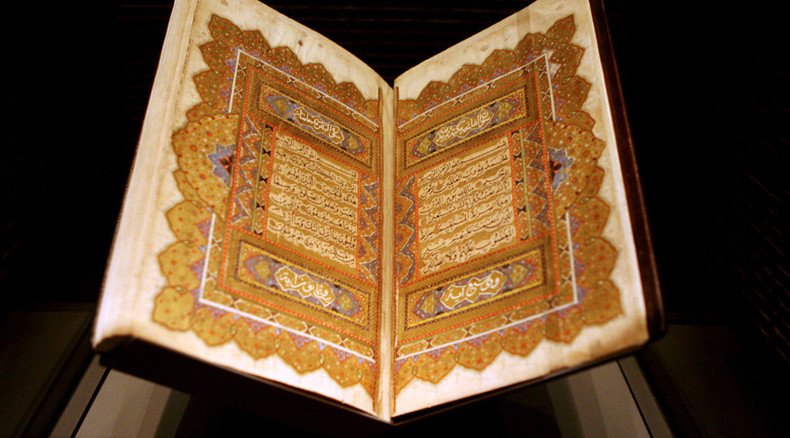Koran fragments found in Birmingham library ‘may date back to Prophet’s life’

Fragments of the Koran believed to date back to the time of the Prophet himself have been found by the University of Birmingham.
Radiocarbon analysis dated the manuscript back to between 568 and 645 AD, making it at least 1,370 years old and one of the most ancient in existence.
Pages from the holy Muslim text, originally written on the skin of a sheep or goat, had been in the university library for nearly 100 years before being discovered and analyzed by a PhD researcher.
They were initially kept with another Koran manuscript dating back to the 7th century.
Following tests at the Oxford University Radiocarbon Accelerator Unit, researchers dated the fragments of manuscript to roughly the same era as the Prophet Muhammad, who is widely believed to have lived between 570 and 632 AD.
British Library manuscript expert Dr Muhammad Isa Waley called the discovery “exciting.” Researchers said the fragments were some of the earliest evidence of the Koran in existence.
The document is part of the university’s Mingana Collection of Middle Eastern manuscripts.
University of Birmingham’s director of special collections Susan Worrall said: “The radiocarbon dating has delivered an exciting result, which contributes significantly to our understanding of the earliest written copies of the Koran. We are thrilled that such an important historical document is here in Birmingham, the most culturally diverse city in the UK.”
Professor David Thomas, professor of Christianity and Islam, added that the discovery would allow researchers to study the Koran during the founding years of Islam.
“The radiocarbon dating of the Birmingham Koran folios has yielded a startling result and reveals one of the most surprising secrets of the University’s collections. They could well take us back to within a few years of the actual founding of Islam.
“According to Muslim tradition, the Prophet Muhammad received the revelations that form the Koran, the scripture of Islam, between the years 610 and 632, the year of his death,” he added.












